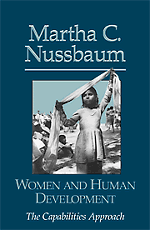CHAPTER THREE - THE ROLE OF RELIGION
Published online by Cambridge University Press: 05 June 2012
Summary
What is left of the Law of the kings? From of old, we have heard, they do not bring law-minded women into their hall. This ancient eternal law is lost among the Kauravas … For this foul man, disgrace of the Kauravas, is molesting me, and I cannot bear it any longer.
Queen Draupadī, as the men of Duryodhana's entourage attempt to undress and molest her, in The Mahābhārata,Although all religions were initially founded with the aim of purifying men and women and helping them to lead ethical lives through prayer, it was found in some instances that blind traditions, customs and superstition often resulted in – not the cathartic effects of religion – but the spread of communalism, fanaticism, fundamentalism and discrimination.
Heera Nawaz, law student, Bangalore College of Law, 1993RELIGIOUS LIBERTY AND SEX EQUALITY: A DILEMMA
Modern liberal democracies typically hold that religious liberty is an extremely important value, and that its protection is among the most important functions of government. These democracies also typically defend as central a wide range of other human interests, liberties, and opportunities. Among these are the freedom of movement, the right to seek employment outside the home, the right to assemble, the right to bodily integrity, the right to education, and the right to hold and to inherit property. Sometimes, however, the religions do not support these other liberties.
- Type
- Chapter
- Information
- Women and Human DevelopmentThe Capabilities Approach, pp. 167 - 240Publisher: Cambridge University PressPrint publication year: 2000

